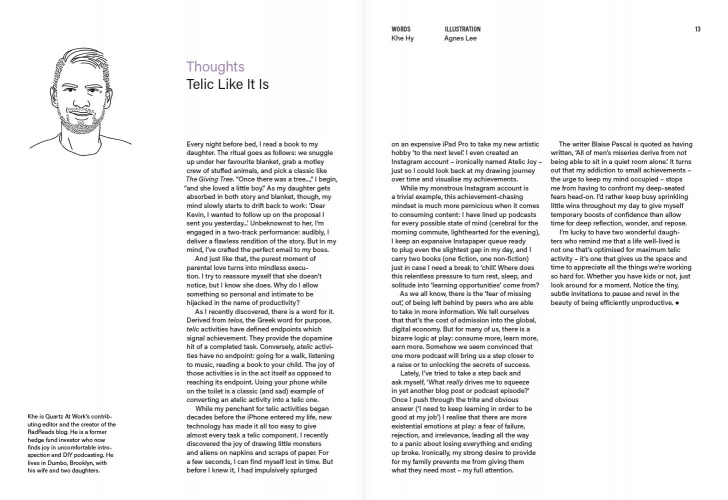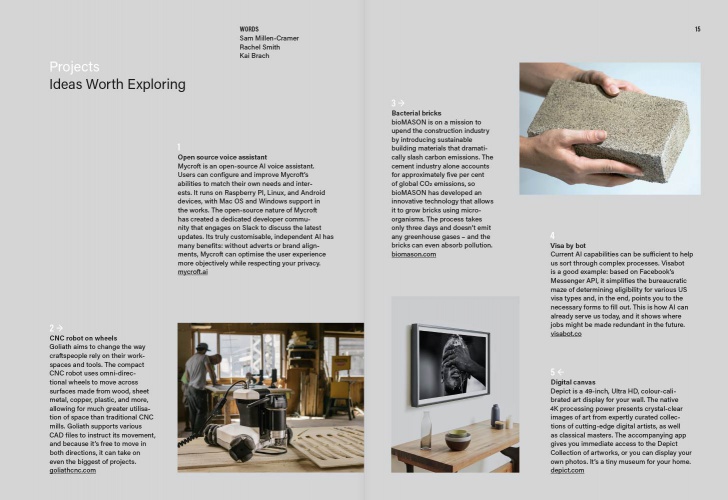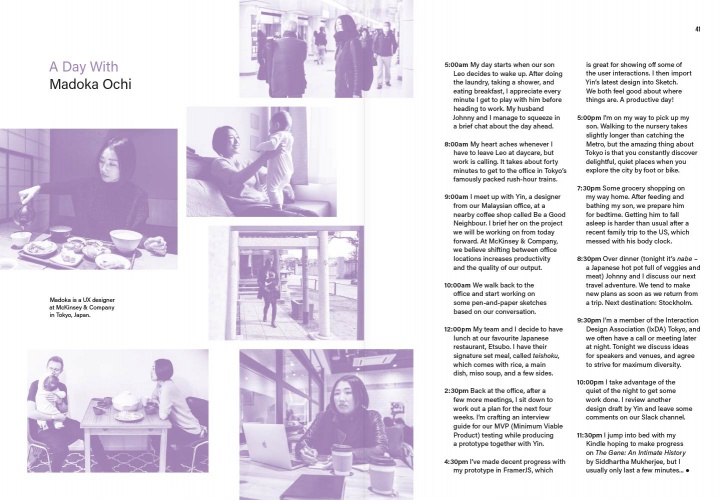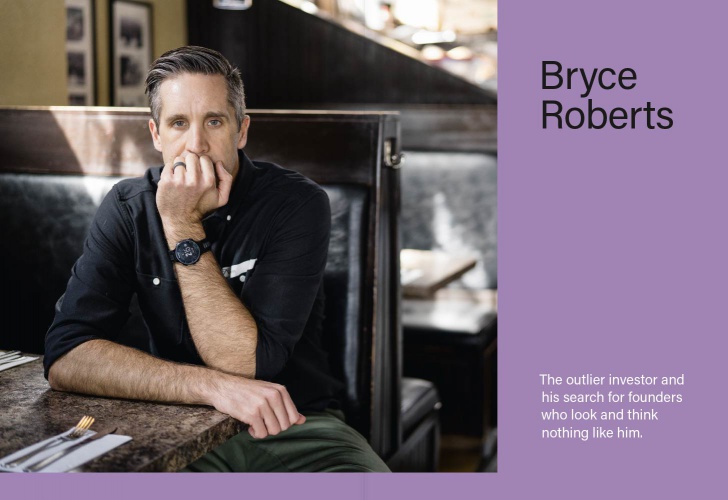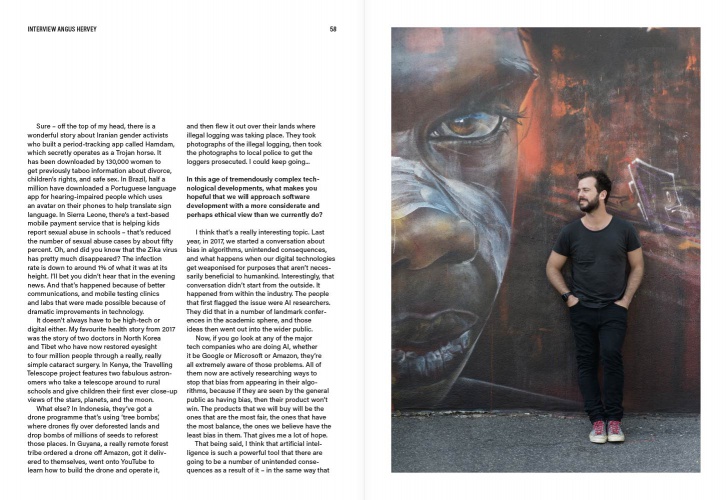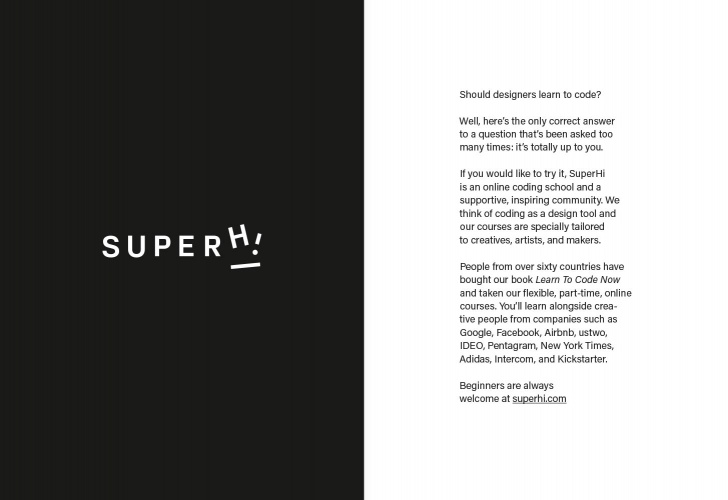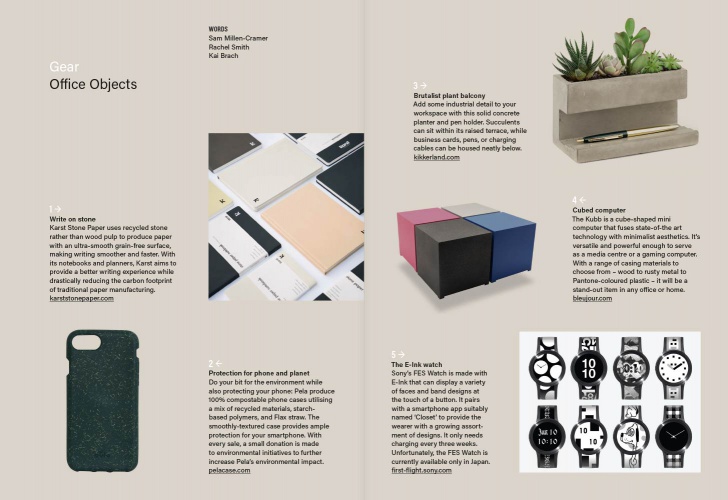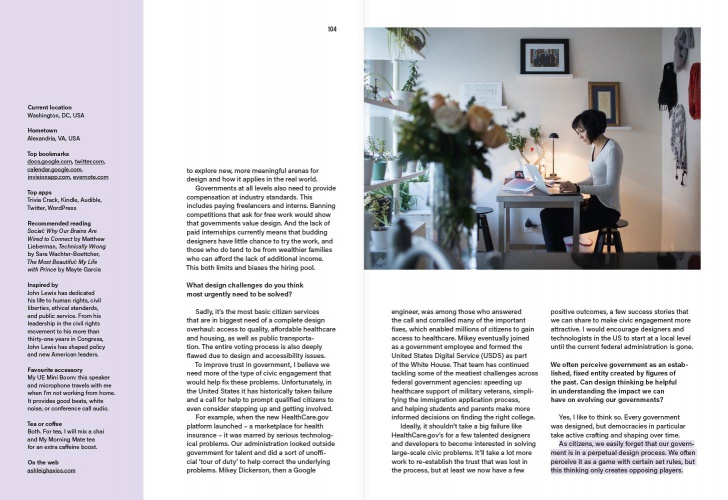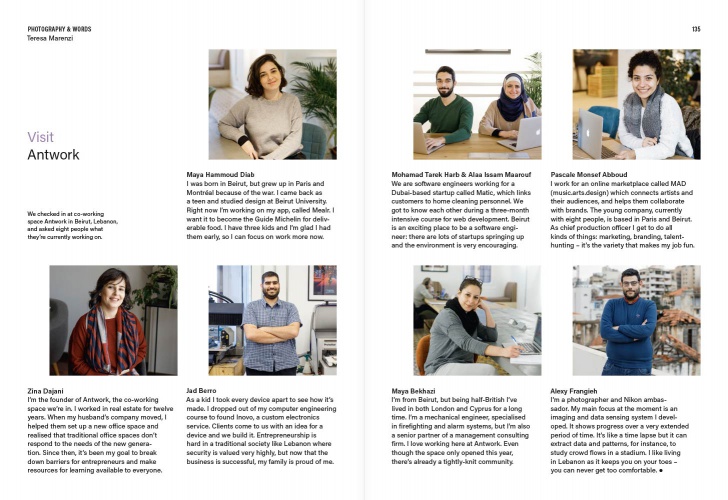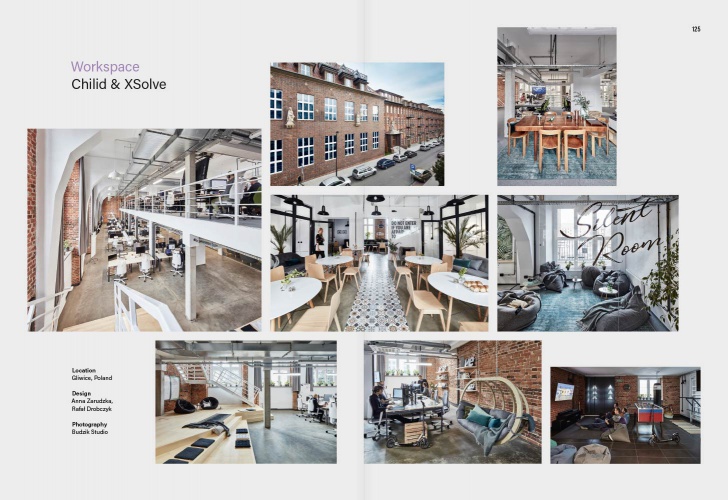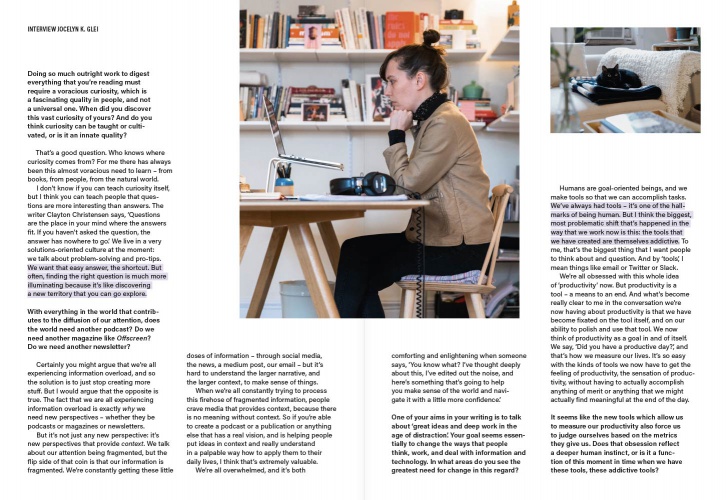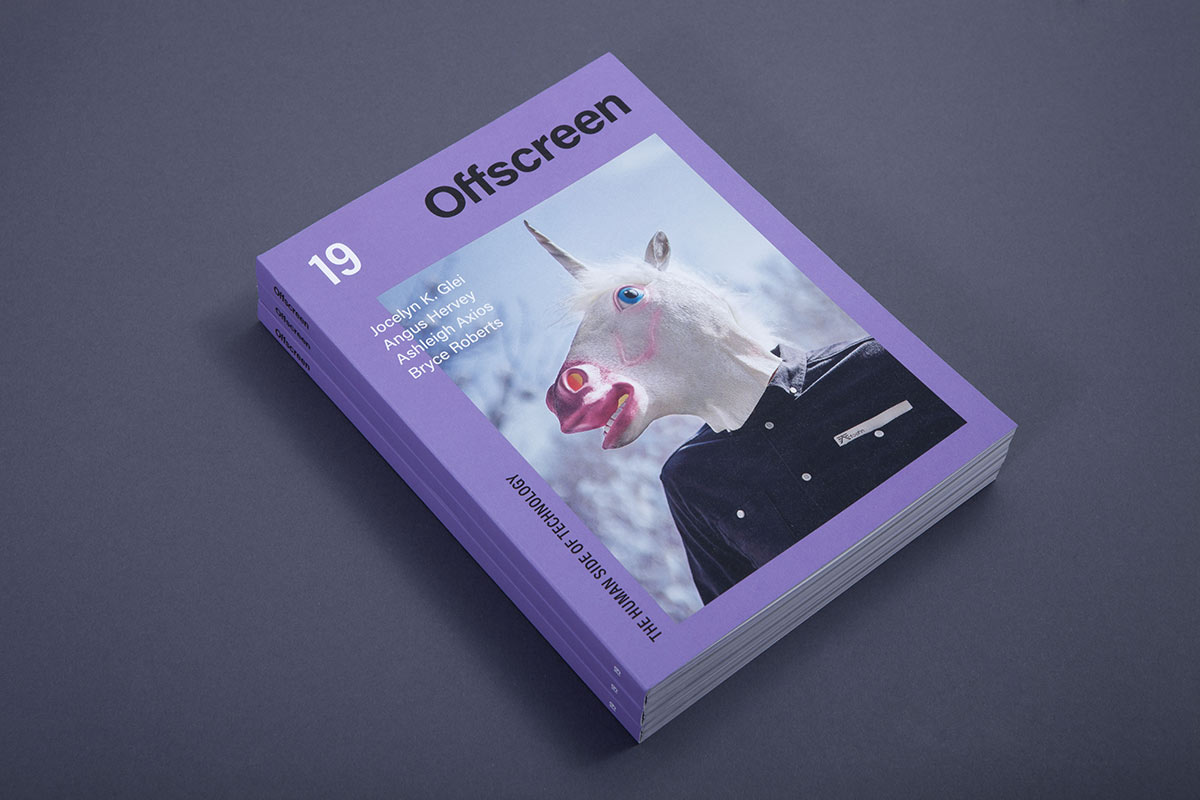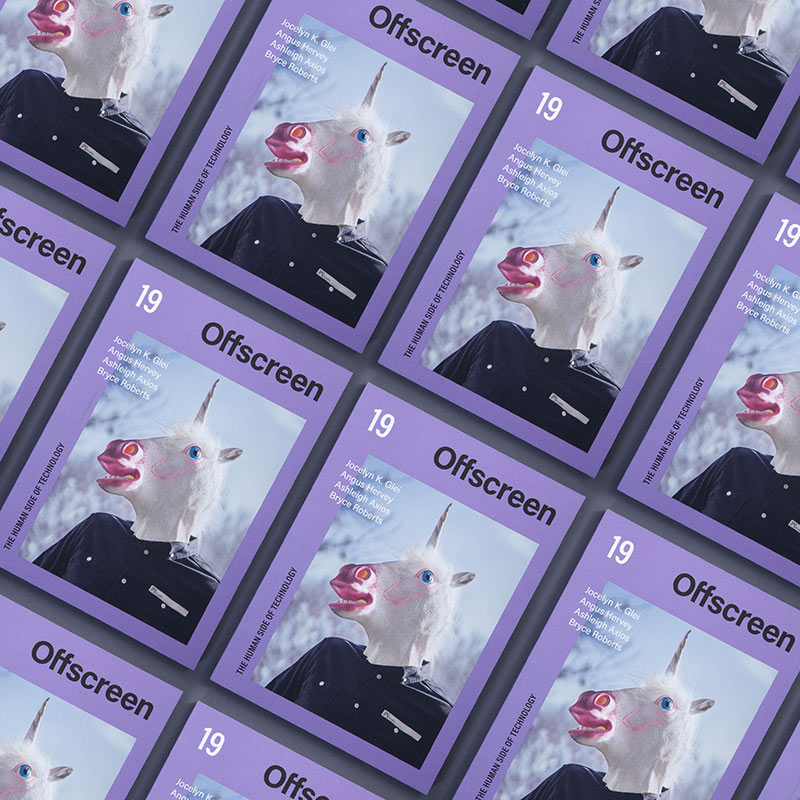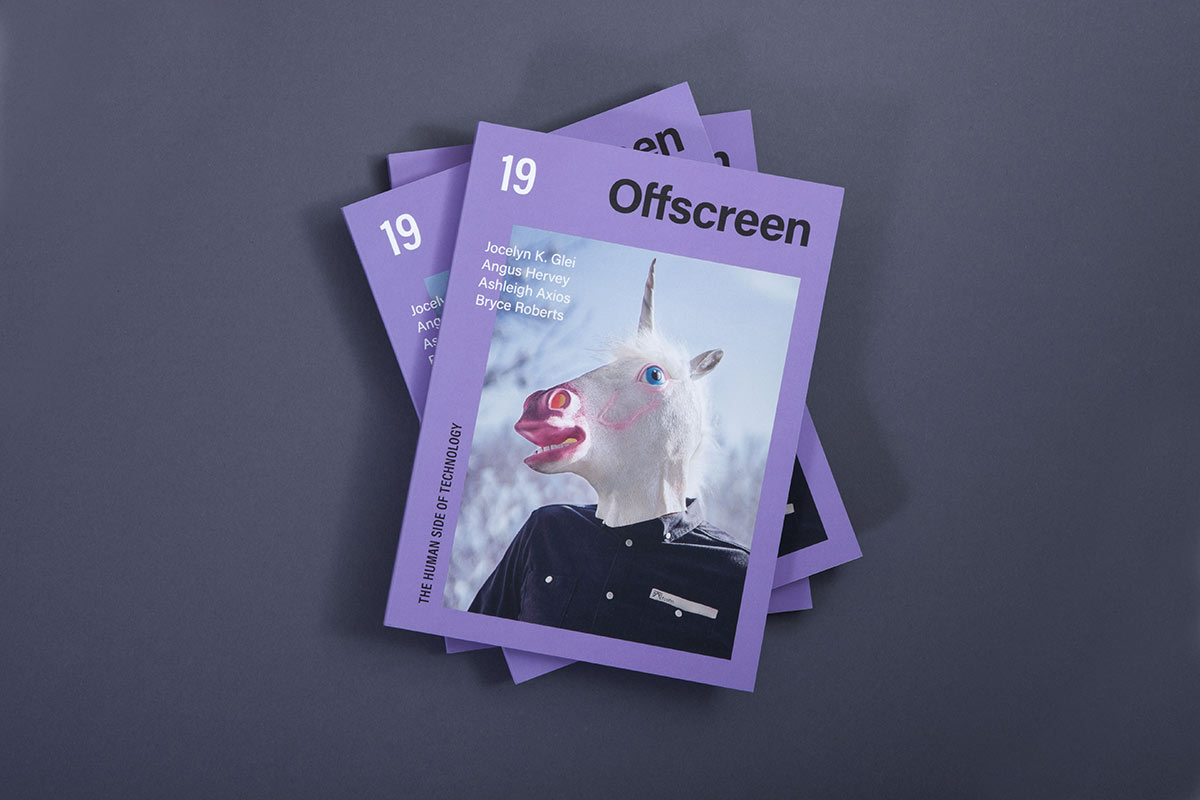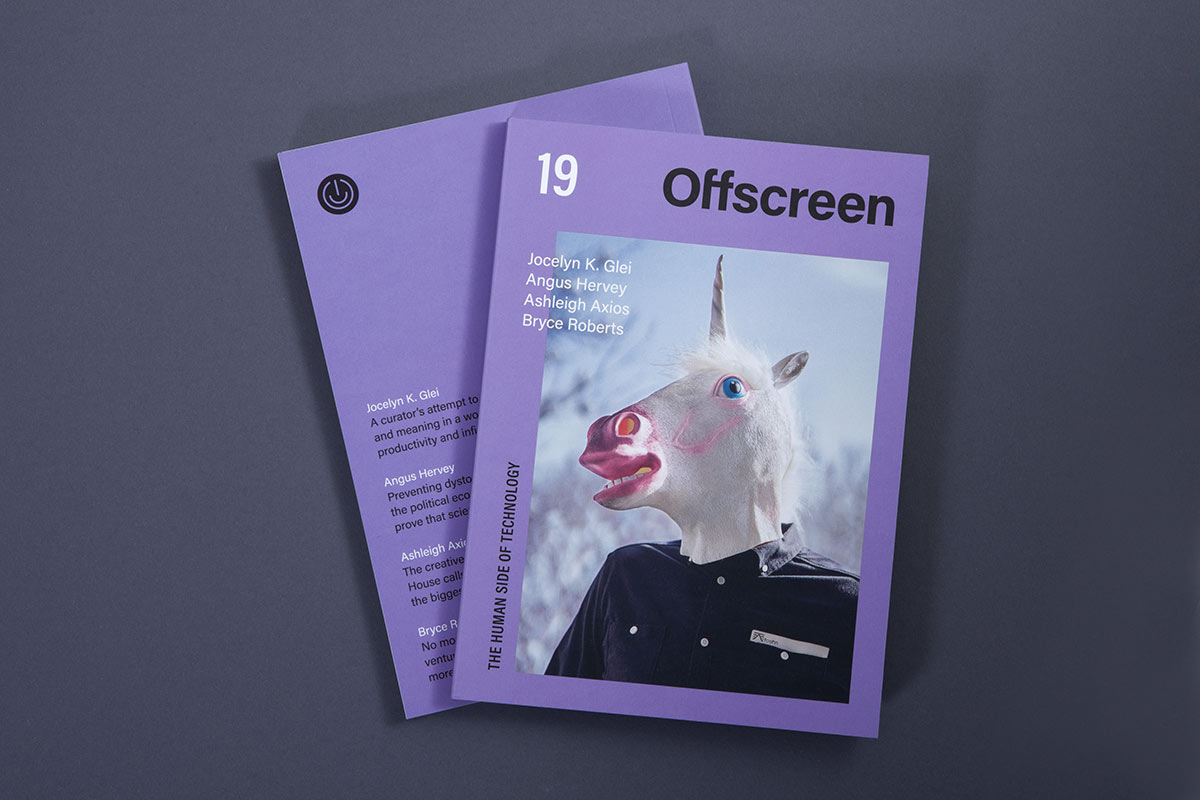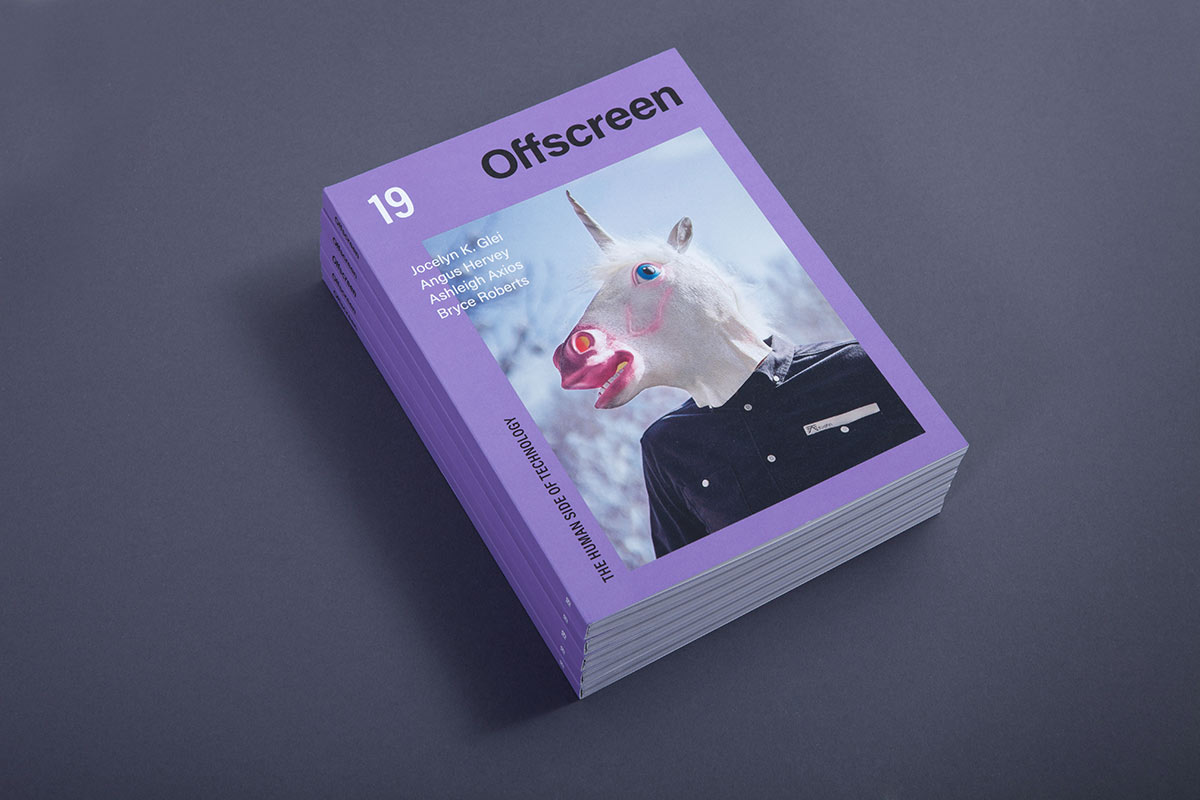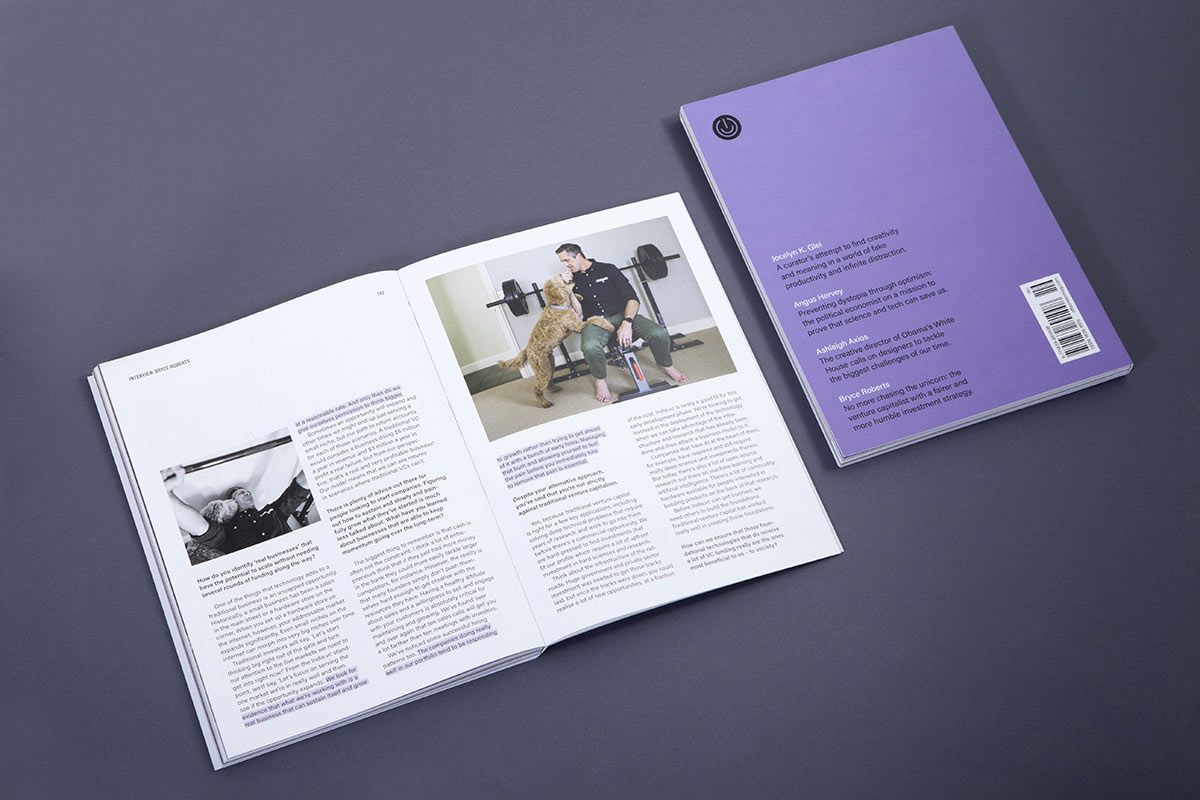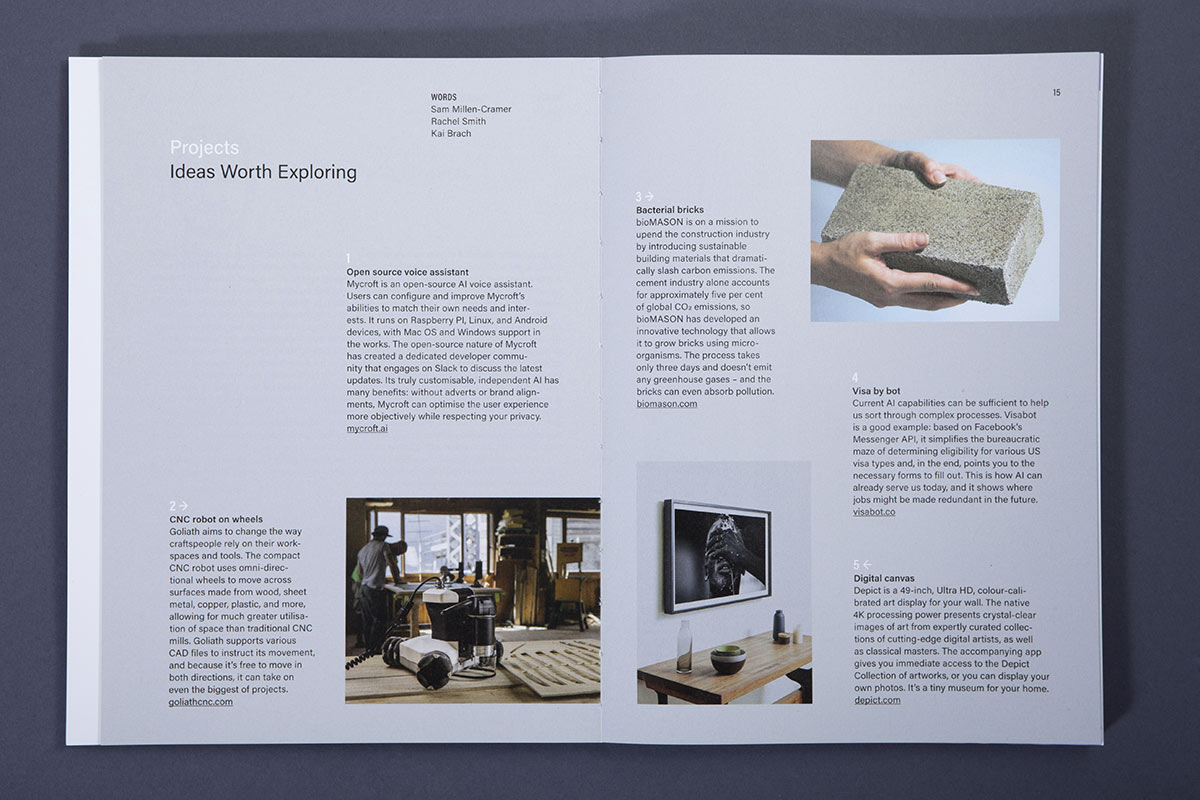Unfoundered
Food for thought by Gemma Milne.
Telic Like It Is
Food for thought by Khe Hy.
Projects
A collection of projects and ideas worth exploring, curated by Sam Millen-Cramer, Rachel Smith and Kai Brach.
Interview
Jocelyn K. Glei on fake productivity, smartphones as anti-risk-taking devices, and the benefits of walking for creative success.
A Day With
Spend a day with Madoka Ochi.
A Day With
Spend a day with Brett Torrey Haynes.
The Internet of Things
Working towards a more responsible IoT, with Laura James and Peter Bihr.
Interview
Angus Hervey on intelligent optimism that informs action, technology's unintended consequences, and his excitement about new developments in the non-western world.
Rules of Business
Guiding principles for doing business, by Yasmine Mustafa.
Stats
Putting numbers in perspective.
Gear
A collection of useful and beautiful office products, curated by Sam Millen-Cramer, Rachel Smith and Kai Brach.
Interview
Ashleigh Axios on how to prepare for working at the Obama White House, the need for more citizen engagement, and design's ability to create positive social change.
Profile
Sean McGeady speaks to David Risher, co-founder of Worldreader, a non-profit organisation that aims to bring digital books to the developing world.
One Question
We asked our readers: What’s one thing you learned about yourself recently that changed the way you work?
Workspace
A tour around the offices of Chilid, Viva Wallet, ironSource, Slack, and Globant.
Visit: Antwork
Teresa Marenzi stopped by co-working space Antwork in Beirut, Lebanon, and asked eight random people what they’re currently working on.
Interview
Bryce Roberts on defying the never-ending search for growth, his focus on funding entrepreneurs from underrepresented groups, and his decoder ring for mental well-being.
Ten Things I’ve Learned
Anjali Ramachandran and Vicki Boykis share ten life lessons from working on the web.

